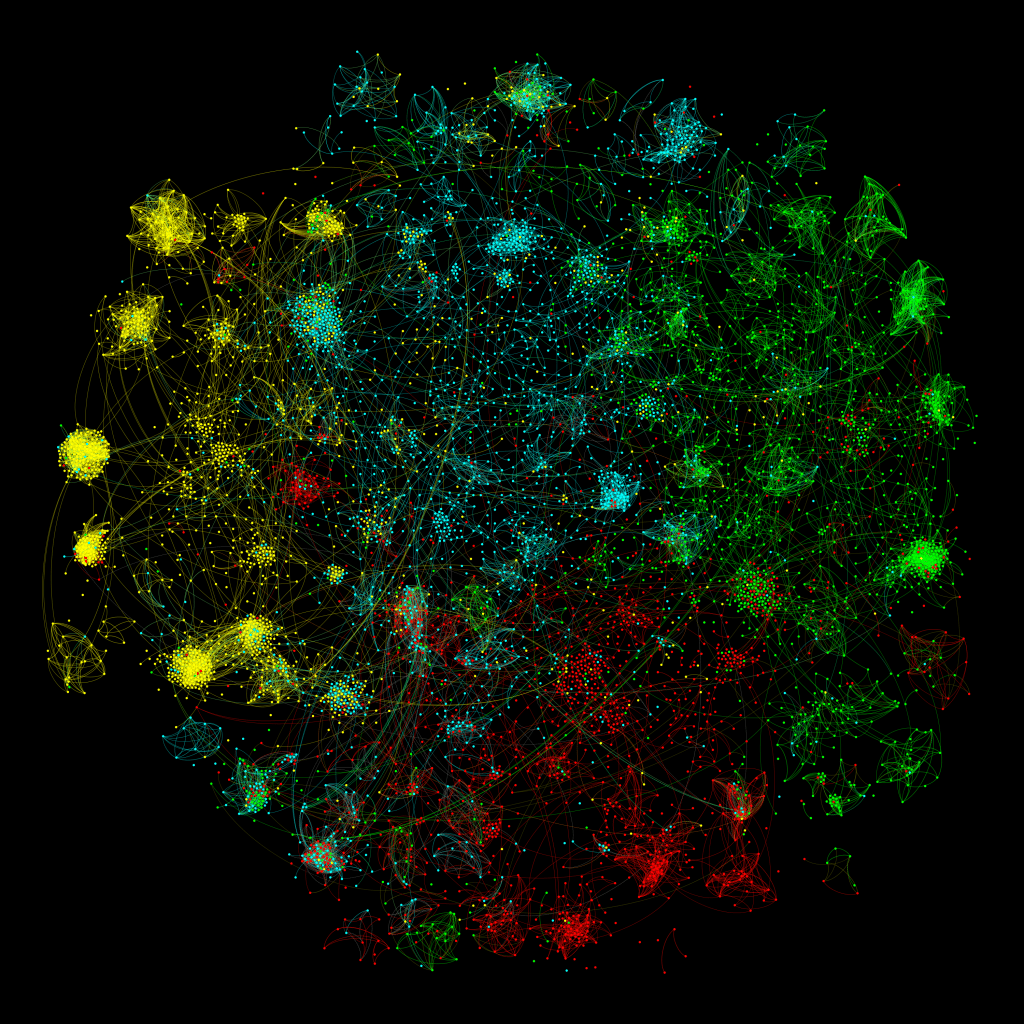Digital Research Report Visualises the Ref Data to Show That Impact Is Delivered via the Diversity and Interdisciplinarity of UK Higher Education Research
Digital Science ‘BrainScans’ Show Knowledge Networks across UK Research Base
London: July 14th 2015: Digital Science, a global technology company serving the research community, today revealed a new picture of the knowledge connections that enable UK based research to have far-reaching impact.
The Digital Research Report, called ‘The Diversity of UK Research and Knowledge’, reveals the way national strength is composed of an institutional mosaic of topical specialisations.
The Digital Science ‘BrainScan‘ data that accompanies the report captures the findings from Research Excellence Framework (REF, 2014) impact case studies in an innovative graphic form. Its networks visualise the links between research fields – nationally and institutionally – that underpin the social, health and economic benefits that researchers deliver.
Main insights:
- The analysis explores the benefits of UK-sourced research impact, focussing on mental health and climate change
- The report looks at the diversity and interdisciplinary structure of the UK research base through novel subject networks coined “BrainScans”
- An accompanying online interactive visualisation tool allows users to explore case study links and similarity (access online here)
The REF is the first attempt to gather information on how research has a direct impact on other domains. The REF2014 included a total of 6,975 case studies submitted by 154 universities and colleges and grouped into 36 disciplinary units of assessment (UOAs). Digital Science has turned this collective data into the ‘BrainScans’ to make the connection between topics, from the arts, humanities and core sciences.
Dr Ian Viney, Director of Strategic Evaluation and Impact at the Medical Research Council says of the report:
“The visualisations in the Digital Science ‘BrainScan’ are a powerful way of highlighting the huge diversity of important economic and societal impacts realised from UK academic research.”
Dr Jonathan Adams, Chief Scientist at Digital Science explains:
“The Digital Science ‘BrainScan’ is a great way to compare research portfolios for institutions ‒ and it can be applied to Research Council programmes as well. It extends our understanding of the value of diversity to our overall UK achievement.”
The REF2014 case studies’ database, developed jointly for the Higher Education Funding Council for England by Digital Science and King’s College London, demonstrates the impact of the academic research carried out by the UK’s universities and higher education institutions over the past twenty years. The freely available website and its underpinning database contains a wealth of information about UK research and its impact on health, society, the economy and the environment, in a format that is easy to search and categorise.




